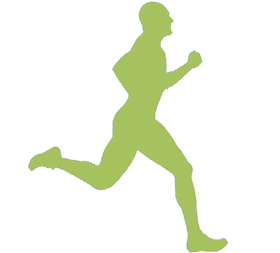For men over 40, aging is a natural part of life that will inevitably lead to various medical conditions and declining health. However, although aging can cause the body to break down, many men rarely think to attribute their age-related symptoms to possible hormone imbalances, such as low testosterone. But the truth is that low testosterone affects at least 4 to 5 million men in the United States and, according to studies, is primarily responsible for many symptoms and diseases associated with age.
Low testosterone, also known as male hypogonadism or Low T, is a medical condition in which the testicles can no longer produce enough testosterone. Many symptoms of low testosterone are similar to ones found in common age-related diseases, so it’s easy for men to confuse the signs of Low T with the natural effects of aging.
Nevertheless, there are ways to recognize low testosterone signs in males. Throughout this article, we’ll discuss what happens when a man’s testosterone is low and what to do once the body begins exhibiting the symptoms.
What Causes a Man’s Testosterone Level to Drop?
After 30, men’s testosterone levels typically begin to decline and continue to decrease by 1% yearly for the rest of their lives. However, aging isn’t the only cause of low testosterone. Many other potential medical conditions can also lead to testosterone decline, which include:
- Injury or infection to the testes
- Hemochromatosis (a disorder where too much iron is produced in the blood)
- Testicular cancer
- Chemotherapy
- Chronic kidney disease
- Cirrhosis of the liver
- HIV/AIDS
- Kallman syndrome (abnormal development of the hypothalamus)
- Obesity
- Type 2 diabetes
The 5 Most Common Signs of Low Testosterone in Men
For years the medical community has rigorously studied the link between low testosterone and age-related medical conditions. After many clinical studies, researchers have found that men with low testosterone typically exhibit a range of similar symptoms. So what exactly does low testosterone do to a man? Here are five of the most common changes that physicians check for when diagnosing Low T symptoms in men:
Weight Gain
Testosterone deficiency can cause decreased muscle growth, making it harder for the body to suppress weight gain. Lean muscle tends to burn more calories than fat, while reduced muscle mass will cause the body to store the energy from calories as fat. Enough stored fat can lead to rapid weight gain and eventually obesity, which can also cause testosterone to decline further.
Problems With Erections
Low testosterone can also cause sexual-related symptoms such as decreased sex drive and erectile dysfunction. In addition, hormonal imbalances like Low T are typically linked to chronic medical conditions such as high blood pressure and Type 2 diabetes, leading to poor circulatory health and reduced blood flow to the penis. Due to low libido and decreased blood circulation, men with Low T may find it more difficult to achieve and maintain erections during sexual activity.
Changes in Mood
Low T symptoms such as weight gain and erectile dysfunction can also affect your self-esteem and cause changes in your mood. In addition, men with low testosterone typically have increased cortisol, a steroid hormone responsible for controlling the body’s stress response. As a result, raised cortisol levels can lead to several mood changes, including irritability, depression, hostility, and anxiety.
A Decrease in Energy Levels
Testosterone is vital in regulating a man’s energy and physical performance. When your testosterone levels are low, it can cause a severe drop in energy levels, leading to fatigue and loss of motivation. Low testosterone can also cause insomnia, limiting your hours of restful sleep and adding to chronic fatigue, making it more difficult to stay active during the day.
Hair Loss
Although there are several other natural causes for male pattern baldness (i.e., aging and genetics), hormonal imbalances such as low testosterone have also been shown to affect hair loss. Testosterone is primarily responsible for regulating facial and body hair growth in men, so when testosterone levels decline, it can also cause the hair follicles to become weaker. As a result, men with low T levels may eventually experience hair thinning or male pattern baldness. In addition, other symptoms related to Low T, including weight gain and erectile dysfunction, can also induce stress and further accelerate hair loss.
Don’t wait, improve your life now.
Other Signs of Low Testosterone Signs in Males
Aside from hair loss, there are other common symptoms of Low T in males, including:
- Loss of muscular strength
- Weaker bone mass
- Decreased sperm production
- Reduction in the size of the testicles
- Increased blood cell count
If you’re a man over 30 and have begun to exhibit many of these symptoms, it’s highly possible that your testosterone levels have started declining.
What To Do if I Have Low Testosterone Signs?
If you suspect that you may be experiencing any symptoms of low testosterone, then you should visit a nearby Low T clinic to receive a diagnosis and possible treatment. As part of your consultation, a physician will usually conduct blood tests to check your testosterone levels and determine the underlying cause of your Low T symptoms. Based on the results, your physician will make a final diagnosis and prescribe a medicated plan to help you restore your testosterone to healthier levels.
How is Low Testosterone Treated?
Currently, testosterone replacement therapy (TRT) is the most effective in treating Low T for men. There are several ways physicians can administer TRT, which can include:
- Intramuscular Injection
- Gels
- Pellets
- Subcutaneous injection
Discuss your medical history and the risks and benefits of each treatment option with your physician so they can determine the best way to administer your TRT therapy. For example, men with a family history of prostate cancer should avoid using TRT as the treatment may increase the risk of developing the condition.
Making changes to your lifestyle and diet can also help treat low testosterone. A regular exercise regimen and a nutritional diet consisting of natural foods with essential vitamins and minerals can also help provide a boost to your testosterone levels. Your physician may even recommend specific exercise routines and foods for you to try while undergoing medicated treatment to help optimize your increased testosterone production so you can achieve the best results.
At Renew Vitality, our staff of experienced medical professionals specializes in providing comprehensive testosterone replacement therapy to men over 40 suffering from low testosterone. With our vast range of hormonal treatments and wellness programs, we can help men boost their low testosterone to normal levels and optimize their overall health. Contact us at 1-800-785-3945 to schedule an appointment at any of our hormone replacement clinics in the United States.

revive
your youthful
energy
Protecting and enhancing a variety of physical functions, testosterone is essential for energy, muscle and bone growth and sexual health.
When levels drop, many men experience fatigue, muscle weakness, erectile dysfunction and even osteoporosis.

revive your
physical
performance
Reversing the effects of aging, Sermorelin treatments help restore youthful energy and health.
GHRH has been proven to protect and increase muscle mass, reduce body fat, improve physical performance, improve sexual drive and sleep patterns.

revive your
sexual
health
Testosterone isn’t the only fuel for a man’s sex drive and performance. But low testosterone can reduce your ability to have satisfying sex.
Lack of sex drive and erectile dysfunction are sexual problems that can result from low testosterone.
Take the low-T Quiz




